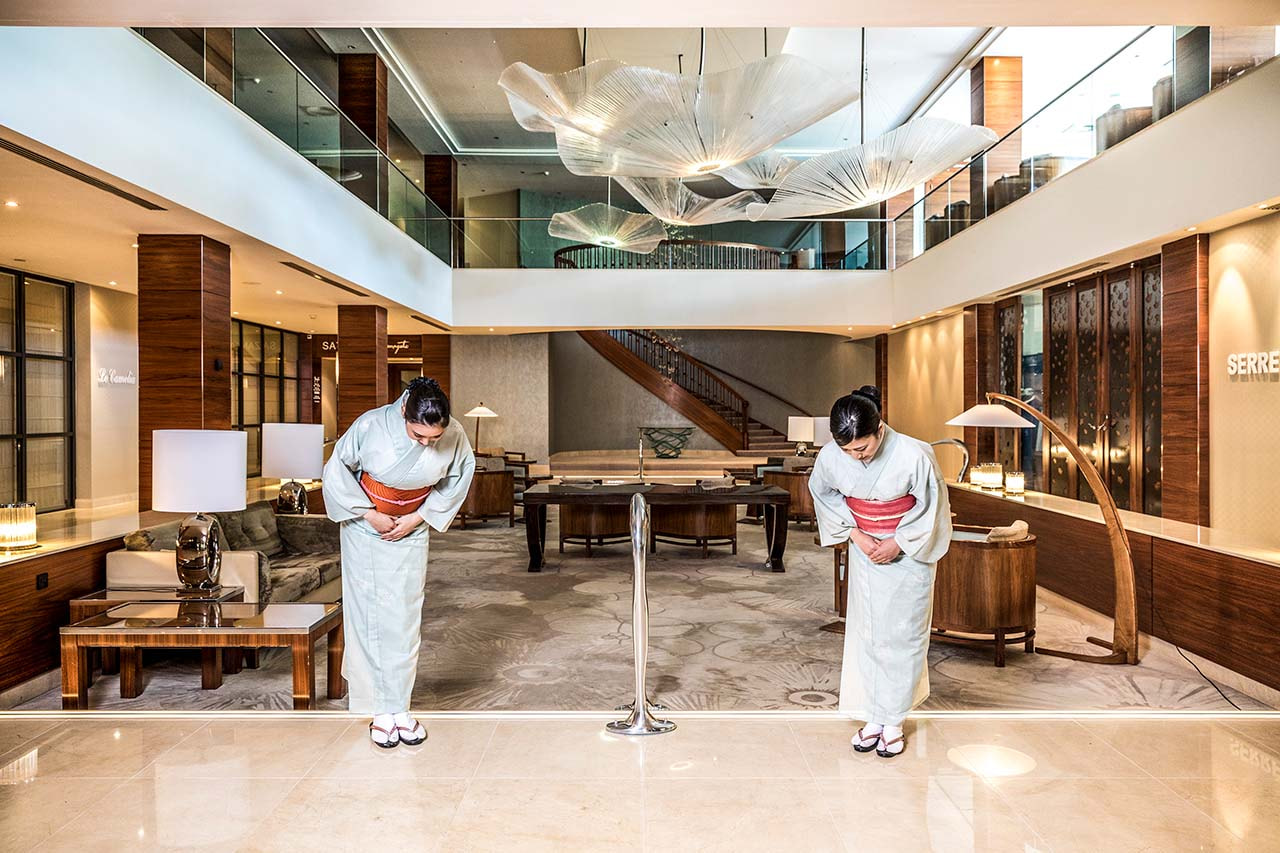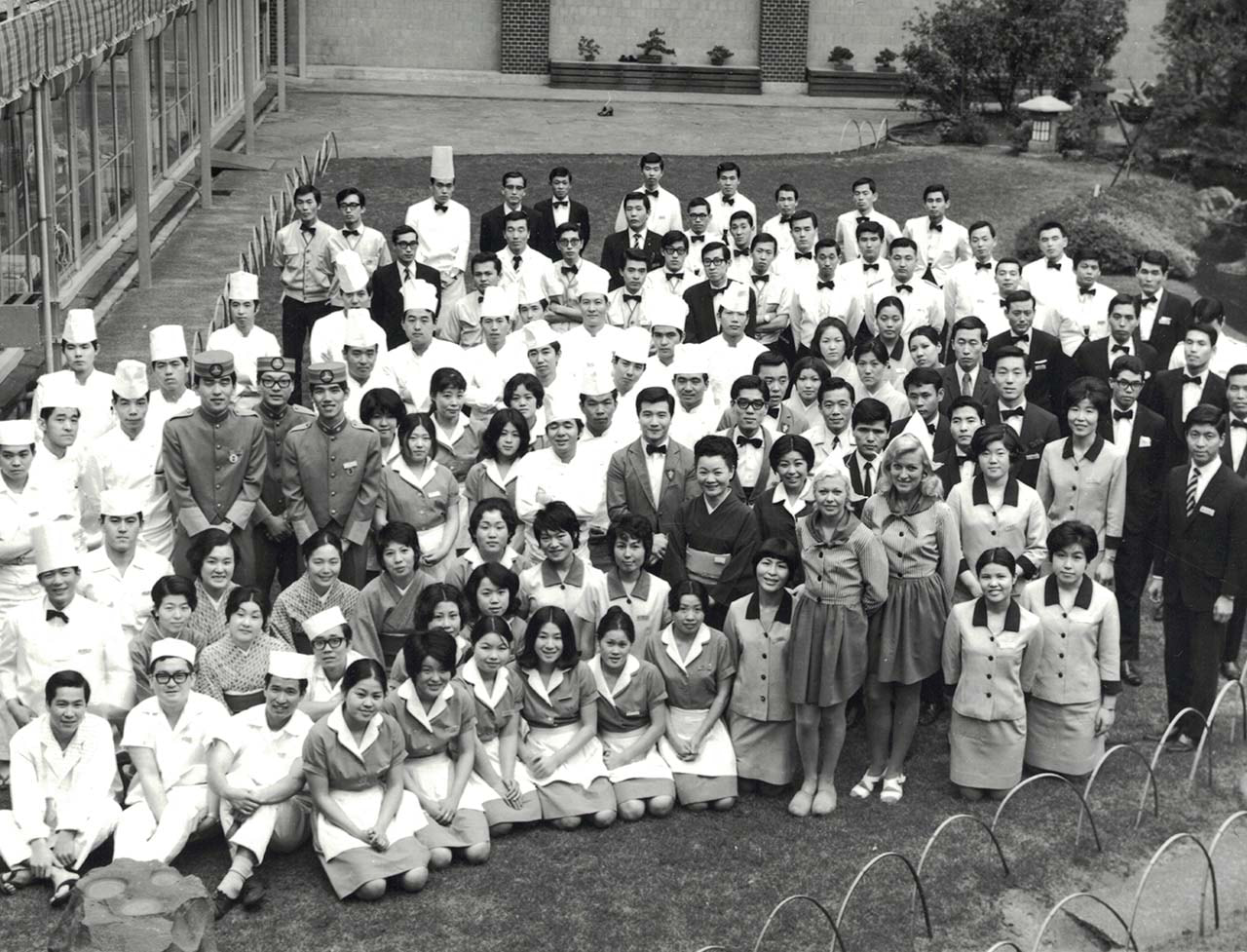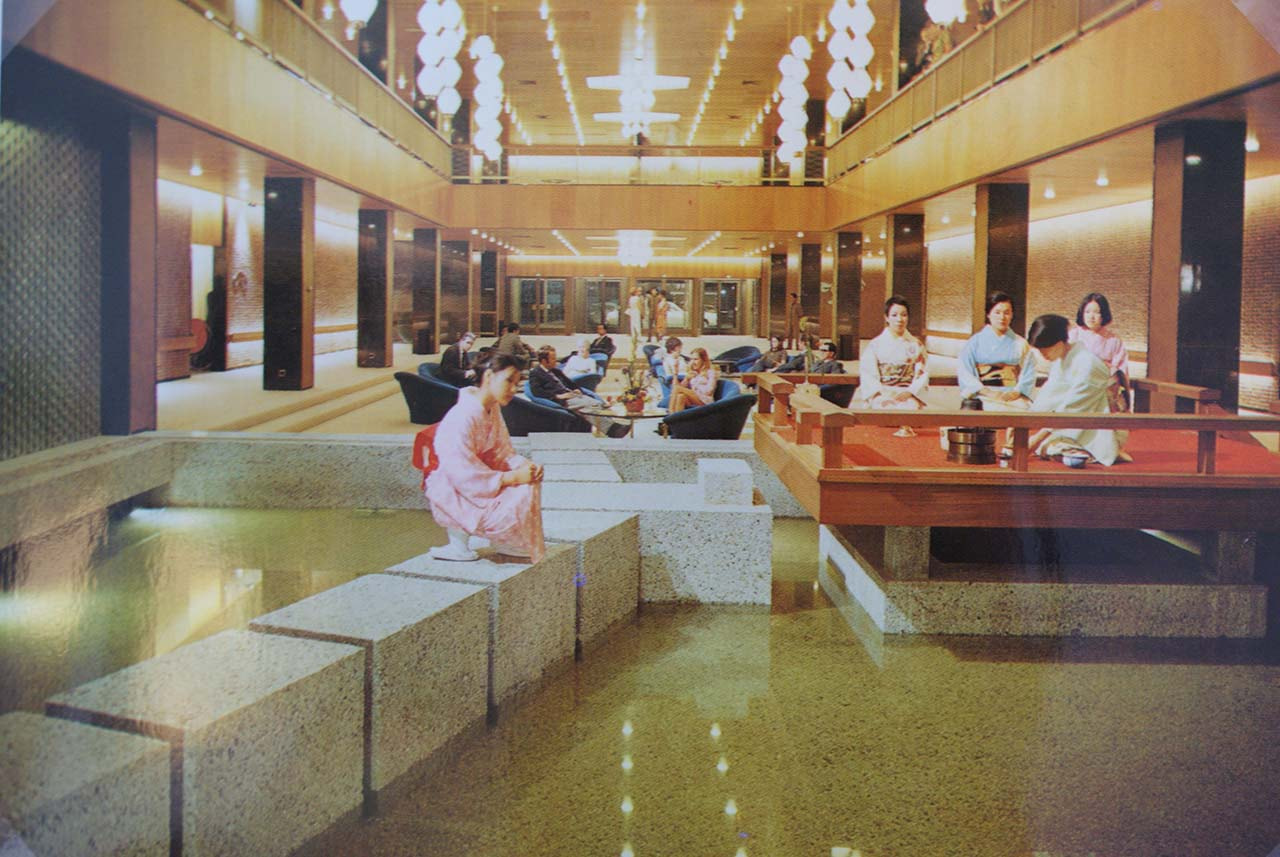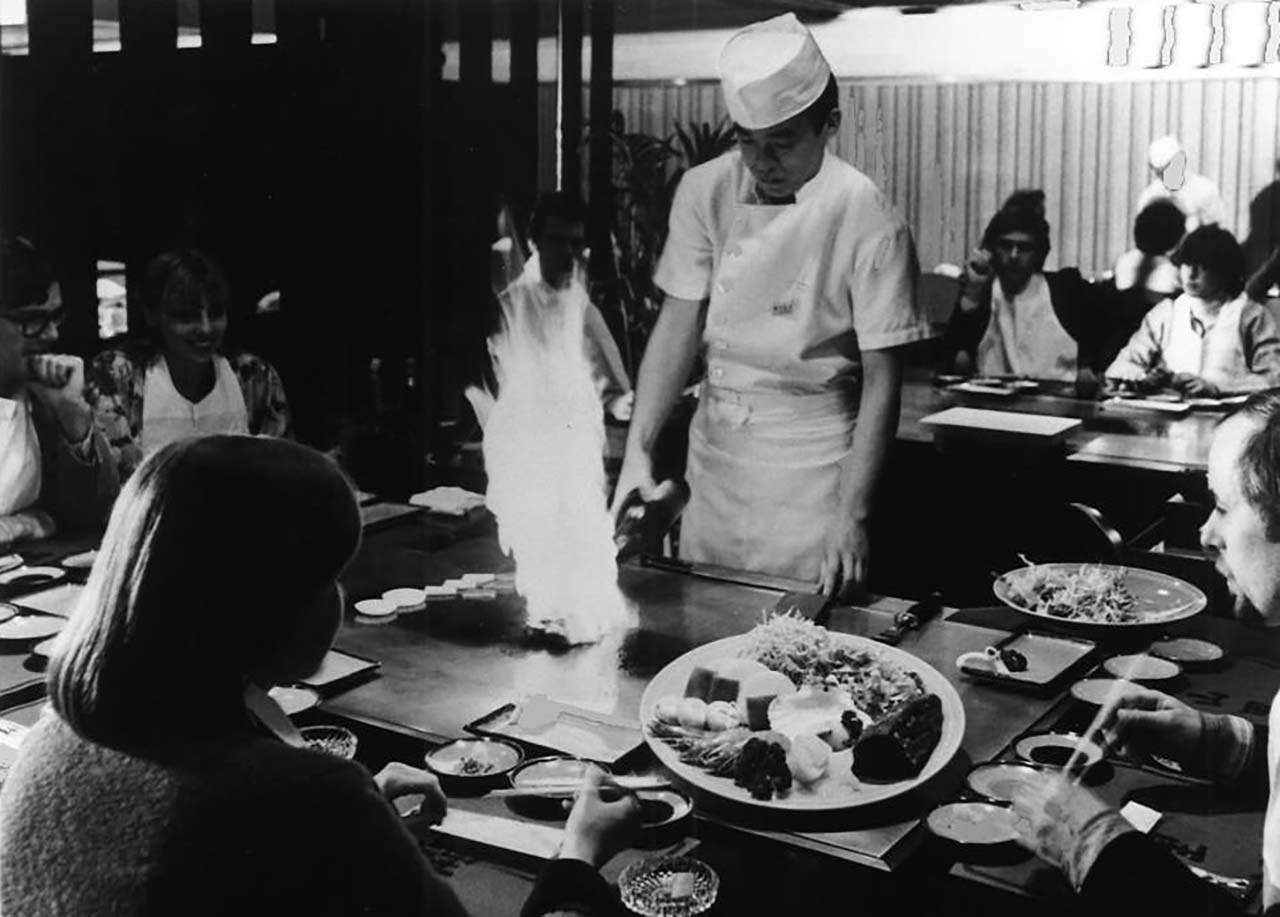A helping hand in a new cultureThe art of Caring
Hotel Okura Amsterdam cares about society – about its surrounding neighbourhood and the environment. But it is equally committed to its own employees and respects the many cultures represented by its international workforce. This is The Art of Caring.
When Hotel Okura Amsterdam opened its doors for a trial run in the summer of 1971, Japanese hostesses dressed in traditional kimonos greeted all the guests with a bow. Omotenashi, the epitome of Japanese hospitality, permeated all corners of the hotel; there were Japanese chambermaids, chefs, hostesses, waiters and bellboys, as well as Japanese colleagues in the sales, planning and financial departments. In those early years, there was only one way for Hotel Okura Amsterdam to offer its guests the high level of hospitality they would expect – by employing Japanese staff. After all, only they understood and had mastered the centuries-old omotenashi culture.



.png)

